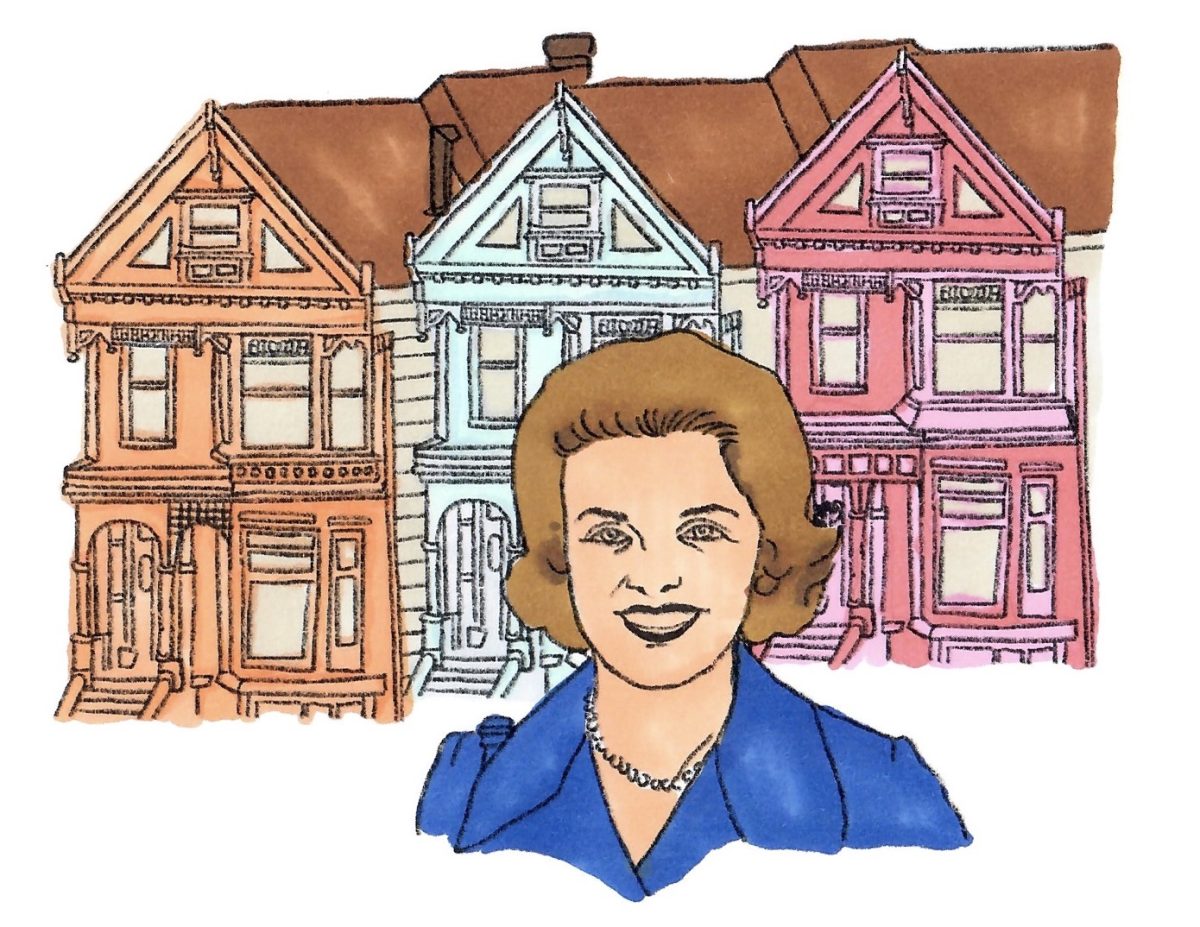On September 29, 2023, Senator Dianne Feinstein passed away at her home in Washington, D.C. After more than five decades of doing public service in San Francisco and broader California, her work has affected generations of Californians and drastically influenced how the state’s politics and city environments look today.
Vice President Kamala Harris, Representative Nancy Pelosi and Mayor London Breed all spoke at the City Hall memorial for Feinstein after her passing. “The event spoke to women’s power,” said San Francisco Youth Commission Member Linda Ye ‘24, who sang with the San Francisco Girls Chorus at the event. “[It] just speaks to what women can do, what we’re capable of doing. … [Feinstein] created a path where women can be inspired to become [the] mayor of San Francisco.”
Feinstein’s career began in San Francisco, where she served on the Board of Supervisors and unsuccessfully ran for mayor in both 1971 and 1975. She eventually became mayor following the assassination of incumbent Mayor George Moscone. Feinstein served for two terms from 1978 to 1988. For the last 30 years of her life, she was a United States Senator for California beginning in 1992.
Throughout her career, she advocated in favor of abortion rights, environmental protection, gun control and other legislation at the state and federal levels. In 1994, she authored the federal Assault Weapons Ban, which prohibited the manufacturing and selling of certain semi-automatic assault weapons in the United States until it expired in 2004. She also advocated for the codification of Roe v. Wade, the landmark case protecting access to abortion, following the 2022 Supreme Court decision to overturn the case.
During the HIV and AIDS crisis of the 1980s, the resources and funds Feinstein put toward addressing the epidemic in San Francisco surpassed the federal government’s entire national spending, countering anti-LGBTQ+ stigmatization and making the city a safer place for the LGBTQ+ community.
However, History and Service Learning Teacher Kristjiana Gong cautioned that the celebration of Feinstein as a champion for the LGBTQ+ community should not come too easily. “She didn’t take risks to protect the queer community, so it feels like a little bit of an exaggeration to call her a queer rights activist,” she said. “She was willing to send in police to San Francisco bathhouses when the queer community … was accused of being the cause and spread of the AIDS crisis.”
Nevertheless, Feinstein’s efforts have had a positive effect on some of San Francisco’s LGBTQ+ community. “Before [Feinstein], if you flew the rainbow flag, you might get hate crimed,” said Ye. “But [now San Francisco] is a haven where it feels like [queerness] can be celebrated.”
Feinstein’s work as a female-identifying politician who climbed from the local to federal ranks also paved the way for more women to enter higher political positions.
Laia Trachtenberg ‘26, intern for San Francisco’s District Eight Supervisor Rafael Mandelman, emphasized the significance of sharing female and Jewish identifiers with Feinstein. “It’s nice to see other people like me that have made it in the past,” she said. “It makes me feel like, ‘Oh, someone like me achieved this. So then why can’t I?’”
Some feel Feinstein helped lay the groundwork for San Francisco to become the city that it is today. “She trailblazed so many paths,” said Trachtenberg. “She cared about San Francisco [and] I feel that same passion with my city. … She was definitely an inspiration.”


